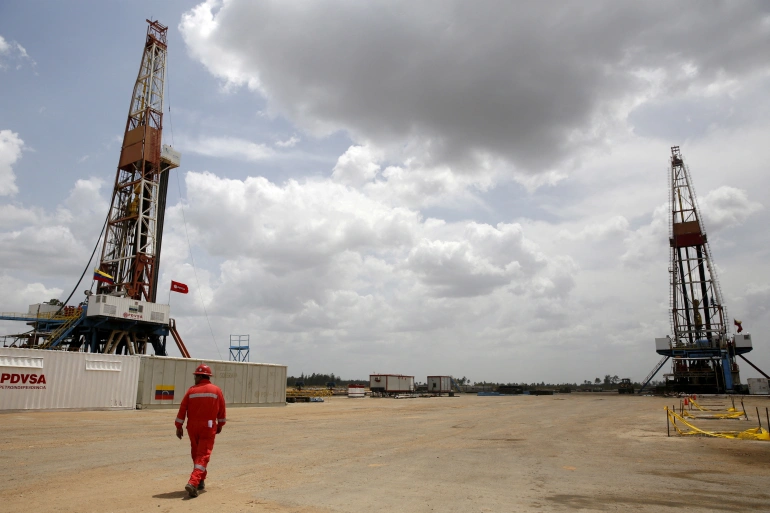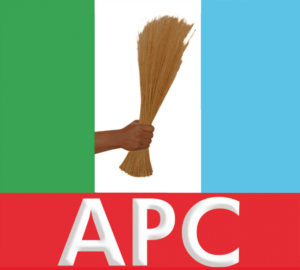
The limited changes will allow Chevron Corp to negotiate its licence with the state-owned oil company, Petroleos de Venezuela (PDVSA).
The United States government is moving to ease a few economic sanctions on Venezuela in a gesture meant to encourage resumed negotiations between the US-backed opposition and the government of President Nicolás Maduro.
The limited changes will allow Chevron Corp to negotiate its licence with the state-owned oil company, Petroleos de Venezuela (PDVSA), but not to drill or export any petroleum of Venezuelan origin, two senior US government officials told The Associated Press late Monday. The officials spoke on the condition of anonymity because the formal announcement had not been made.

Additionally, Carlos Erik Malpica-Flores — a former high-ranking PDVSA official and nephew of Venezuela’s first lady — will be removed from a list of sanctioned individuals, they said.
The moves follow goodwill gestures by Maduro after meeting in March with representatives of the administration of President Joe Biden and a recent gathering in Central America between US officials and the main Unitary Platform opposition coalition to discuss a path forward.
“These are things that … the Unitary Platform negotiated and came to us to request that we do in order for them to be able to return to the negotiating table,” one of the officials said.
Scores of Venezuelans, including the country’s attorney general and the head of the penitentiary system, and more than 140 entities, among them Venezuela’s Central Bank, will remain sanctioned. The US Department of the Treasury will continue to prohibit transactions with the Venezuelan government and PDVSA within US financial markets.
Maduro himself is under indictment in the US, accused of conspiring “to flood the United States with cocaine” and use the drug trade as a “weapon against America”.
Venezuela’s government suspended talks with the opposition in October after the extradition to the US of a key Maduro ally on money laundering charges. Maduro at the time conditioned his return to the negotiating table on the release from custody of businessman Alex Saab, who was extradited from the African nation of Cape Verde.
The negotiations took place in Mexico City under the guidance of Norwegian diplomats. The US officials said they expect the dialogue to resume within weeks.
California-based Chevron is the last major US oil company to do business in Venezuela, where it first invested in the 1920s. Its four joint ventures with PDVSA produced about 200,000 barrels a day in 2019, but the US government ordered it in 2020 to wind down production, and since then, it has only been allowed to carry out essential work on oil wells to preserve its assets and employment levels in Venezuela.
Venezuela sits atop the world’s largest oil reserves, yet its political upheaval and economic decline have pushed more than six million people to migrate in recent years. About three-quarters of those who remain live on less than $1.90 a day, considered the international standard for extreme poverty, and many lack access to clean, running water and electricity.
The US and other countries withdrew recognition of Maduro after accusing him of rigging his 2018 re-election as president. In his place, they recognised Juan Guaidó, who was head of the then-opposition-dominated congress and remains the leader of the Unitary Platform.
For the past five years, the US has used punishing financial and personal sanctions, criminal indictments and support for clandestine groups in an unsuccessful campaign to remove Maduro and restore what it sees as Venezuela’s stolen democracy.
But in March, US officials travelled to Venezuela’s capital, Caracas, to meet with Maduro after Russia’s invasion of Ukraine upended the world order and forced Washington to rethink its national security priorities.
After the meeting, Maduro freed two American prisoners and promised to resume negotiations with his opponents.
The senior US officials said the government will calibrate sanctions based on concrete outcomes at the negotiations and would reimpose them in the event of backsliding in the dialogue process.
Malpica-Flores was once national treasurer and PDVSA’s vice president of finance. He was individually sanctioned in 2017 as the US targeted people associated with Venezuela’s rampant government corruption.
His aunt, Cilia Flores, is one of the most influential members of Venezuela’s government and a constant presence alongside her husband, President Maduro. Two other nephews of hers are imprisoned in the US on drug conspiracy convictions. Al JAZEERA/AP









